Disadvantages of a Gun Trust: Everything You To Know
A gun trust is a legal arrangement used to safeguard firearms and ammunition from unauthorized access. Gun trusts are created by attorneys or estate planners and allow individuals, such as parents with children who live in other states, to protect their firearms while ensuring they can pass them down to eligible heirs.
There are a few disadvantages to establishing a gun trust. The most significant disadvantage is that gun trusts are not legally recognized in all states.
Gun trusts may also be subject to tax regulations if they involve transfers of property to beneficiaries other than spouses or children.
They can be difficult to set up and administer. This article will tell you everything about this topic. So, let’s begin.
How Does a Gun Trust Work?
A gun trust is an irrevocable document that establishes guidelines for the management of firearms and ammunition within the trust.
The trust is registered with the state in which it is established and allows trusts to own firearms and ammunition.
The trust can provide for the sharing of firearms and ammunition between beneficiaries, as well as between trustees and beneficiaries.
Trusts are often administered by a trustee who is designated by the settlor or creator of the gun trust.
How Do You Create a Gun Trust?
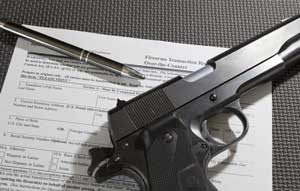
The process of creating a gun trust is typically handled by an attorney or estate planner. The lawyer will work with you to create a legal document that will protect your firearms and ammunition.
The process of creating a gun trust can vary, but typically it involves the following steps:
Forming the Trust:
The first step is to form trust. This will establish the legal framework for your firearms and ammunition holdings.
Allocating Firearms and Ammunitions to Beneficiaries:
After forming the trust, you will need to allocate firearms and ammunition to beneficiaries within it. This allows individuals within the trust to have access to firearms and ammunition.
Assigning a Trustee:
After allocating firearms and ammunition, you will need to appoint a trustee who will oversee the management of those weapons.
This individual should be someone you trust and who can manage your possessions responsibly.
Registering Your Gun Trust with State Authorities:
Once your gun trust is created, it needs to be registered with state authorities in order for it to be effective.
What are the Major Benefits of a Gun Trust?
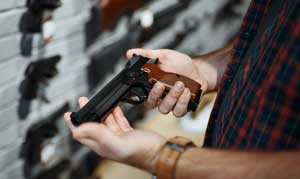
The major benefits of a gun trust include:
Protection from Liability
A gun trust allows you to protect yourself from legal liability if someone were to misuse or damage your firearms.
Ease of Administration
Gun trusts are easy to set up and administer, making it an efficient way to manage firearms and ammunition.
Hiding Firearms From Children
If you live in a state that allows children to carry firearms, a gun trust can help keep your firearms out of the reach of children.
Ability to Make Trustee Changes
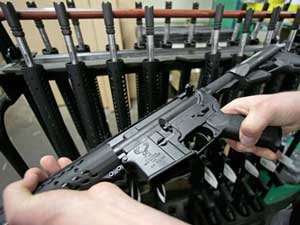
If you want to change who manages your firearms or ammunition, a Gun Trust makes this easy.
Some potential disadvantages of gun trusts include:
- The individual who creates the trust may lack legal expertise and could make mistakes that could jeopardize the security of firearms and ammunition in the trust.
- Gun trusts can be expensive to create, maintain, and update, which could be burdensome for someone who wants to use them only occasionally.
- Gun trusts may not be suitable for all individuals because they require strict adherence to certain statutory requirements. Such as making sure the trust is registered with the state in which it is located.
- Gun trusts may not be subject to all state inheritance laws, which could prevent an eligible heir from inheriting a firearm or ammunition.
- Gun trusts may also be subject to federal estate tax, which could increase the cost of using a gun trust.
What are the Key Elements of a Gun Trust?
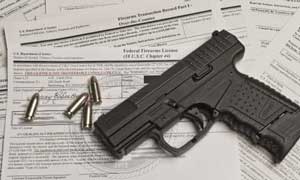
The key elements of a gun trust include:
Individuals Who May Enjoy Weapons
The people who may enjoy your firearms should be listed in the trust. This will help prevent anyone from accessing your weapons without proper authorization.
Location of Weapons
Your weapons should be stored in a safe location, preferably within arm’s reach of you. This will ensure that you can access them quickly in the event of an emergency.
Access to Weapons
You should be able to access your weapons as necessary, including during periods of incapacity or during legal proceedings.
Disposition of Weapons Upon Death or Legal Removal from Trustee’s Custody
If one of the beneficiaries of the trust dies or is removed from trustee custody, the weapons should be disposed of in a safe and responsible manner.
If you would like to create a gun trust, our team can help you get started.
Can a gun trust be used for a single firearm?
A gun trust can be used for a single firearm or several firearms. However, it is important to note that a gun trust may not be suitable for all individuals.
Certain restrictions may apply, such as making sure the trust is registered with the state in which it is located.
Can a gun trust be dissolved at any time?
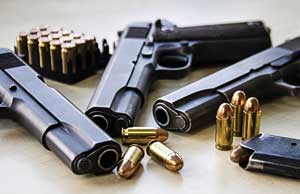
A gun trust can be dissolved at any time, provided that the proper procedures are followed.
Factors that should be considered when dissolving a gun trust include ensuring that the weapons are disposed of in a safe and responsible manner.
And making sure all beneficiaries have been notified of the decision to dissolve the trust.
Why upgrade to a gun trust from NFA?
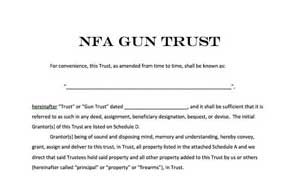
When establishing a gun trust, there are several important factors to consider. One of these is the level of protection that the trust will provide.
A gun trust should be registered with the state in which it is located and may offer additional levels of protection.
Such as making it more difficult for individuals to gain access to weapons. That’s why you should upgrade a gun trust from NFA.
Are gun trusts worth it?
Although gun trusts can protect assets, they have their limitations. Unlike a trusted company, a protective owner cannot respond to threats that arise after the firearm has been entrusted.
Furthermore, if circumstances arose where the weapons were needed in a legal proceeding or by an individual incapacitated at any time during the life of your trust.
It may prove difficult for you to accomplish these goals with only one trustee and not enough restrictions on access and control over its firearms.
That said if you are comfortable with the level of protection offered by a gun trust and feel that it is more than adequate for your needs. Then upgrading to a gun trust may be the best decision for you.
How much does it cost to set up an NFA trust?
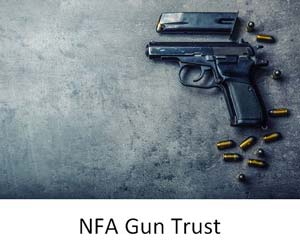
Sometimes, legal fees can be expensive. The process of transferring firearms to a trust requires extensive paperwork, as well as proof that you are the rightful owner of each weapon before they become part of the trust corpus.
Legal fees should also include accounting services and other associated costs such as record-keeping tasks performed in compliance with state laws and rules.
This will make it easier for people who live outside your direct control to access the trust assets when they are required to do so. On average, the cost of setting up an NFA gun trust could range from $200 to $600.
Should I put my suppressor in a trust?
There is no definitive answer to this question. Ultimately, you should consult with an attorney or other knowledgeable professional to weigh the pros and cons of putting your suppressor in a trust. There are several pros and cons to each option as well:
Disadvantages of retaining ownership of a suppressor through an NFA trust include the following:
• Softer classification for your firearm is made more complicated by having it owned in trust
• The trust may be attacked by creditors, resulting in liquidation of the assets
Advantages to putting a suppressor in a trust include:
• You can keep tight control over who can access and use the firearm and its components (suppressor included)
• If you cannot personally possess or carry your suppressor, it is easier for someone else to do so if they have possession of your trust firearm.
Is National Gun Trusts legit?
National Gun Trusts are a legitimate option for individuals who want to set up an NFA gun trust.
However, like any other legal service, there may be certain costs associated with obtaining and setting up a National Gun Trust. That vary depending on the location of your residence.
Additionally, it is always advisable to consult with an attorney or other knowledgeable professional before making any decisions about your legal affairs.
Frequently Asked Questions
1. Can I change the beneficiary of a gun trust?
Yes, you can change the beneficiary of a gun trust at any time. However, it is important to note that certain restrictions may apply.
Such as making sure the new beneficiary has registered with the state in which the trust is located.
2. Who May Ratify or Modify the Gun Trust?
Anyone who would like to ratify or modify your gun trust should be listed as a beneficiary.
This will allow them to have access to your weapons in case of an emergency and ensure that they are informed about changes made to the trust.
3. Who can establish a Gun Trust?
Gun trusts are most commonly created by attorneys or estate planners who understand the legal process and how to protect individuals from liability.
However, anyone can create a gun trust if they have a sufficient understanding of the process.
4. Should I Establish a Gun Trust if I Own firearms in the Multiple States?
If you own firearms in multiple states, it is advisable to establish a gun trust so that you can manage your firearms and ammo securely.
A gun trust allows you to keep your firearms and ammunition separate, preventing them from being accessed by anyone other than the designated beneficiaries of the trust.
5. What if I Move and Would like to Keep My Firearms?
If you move and would like to keep your firearms, it is advisable to create a gun trust. A gun trust will help you keep your firearms safe and out of the hands of children or unauthorized individuals.
Conclusion
A gun trust is a safe and effective way to manage your firearms and ammo. By establishing a trust, you can ensure that those with access to your weapons are well-informed about the trust and its provisions.
Additionally, a gun trust can help you move your firearms without worrying about losing them or having them taken away by the government.
There are a few disadvantages to forming a gun trust. First, it can be expensive to set up and maintain. Second, some states may not recognize gun trusts as valid legal documents.
